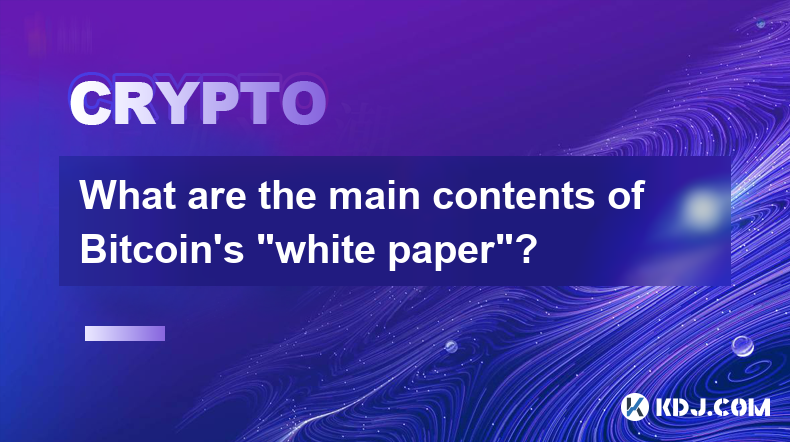-
 Bitcoin
Bitcoin $96,161.2493
-2.14% -
 Ethereum
Ethereum $2,686.5756
-2.45% -
 XRP
XRP $2.5719
-3.67% -
 Tether USDt
Tether USDt $0.9999
-0.04% -
 BNB
BNB $655.8976
-0.15% -
 Solana
Solana $171.9849
-2.65% -
 USDC
USDC $1.0001
0.00% -
 Dogecoin
Dogecoin $0.2435
-4.35% -
 Cardano
Cardano $0.7615
-4.97% -
 TRON
TRON $0.2379
-4.28% -
 Chainlink
Chainlink $17.4447
-5.17% -
 Avalanche
Avalanche $24.9624
-1.92% -
 Sui
Sui $3.3374
-3.85% -
 Stellar
Stellar $0.3266
-3.96% -
 Litecoin
Litecoin $127.2255
-5.17% -
 Toncoin
Toncoin $3.6609
1.73% -
 Shiba Inu
Shiba Inu $0.0...01526
-2.42% -
 UNUS SED LEO
UNUS SED LEO $9.7275
-0.32% -
 Hedera
Hedera $0.2145
-3.18% -
 Hyperliquid
Hyperliquid $24.2706
-2.62% -
 Polkadot
Polkadot $5.0883
0.29% -
 MANTRA
MANTRA $7.6370
0.37% -
 Bitcoin Cash
Bitcoin Cash $317.1514
-3.50% -
 Bitget Token
Bitget Token $5.0005
7.55% -
 Ethena USDe
Ethena USDe $0.9987
-0.10% -
 Dai
Dai $1.0000
-0.01% -
 Uniswap
Uniswap $8.8025
-5.45% -
 Monero
Monero $233.1225
-0.50% -
 NEAR Protocol
NEAR Protocol $3.4727
-2.15% -
 Pepe
Pepe $0.0...09302
-4.88%
Learn what Stader (SD) coin is in one minute
To access the full benefits of the Stader platform, including enhanced staking rewards, diversification, and liquidity of staked assets, connect your supported crypto wallet to the platform, choose your desired blockchain and validator, allocate your assets, and monitor your staking performance.
Jan 05, 2025 at 07:58 pm

Key Points
Understanding Stader (SD) Coin
- Staking-based DeFi (decentralized finance) platform for Proof-of-Stake (PoS) blockchains
- Provides non-custodial staking, yield optimization, and liquid staking solutions
Benefits of Using Stader (SD)
- Enhanced staking rewards through yield optimization features
- Diversification and risk management by staking across multiple validators
- Liquidity of staked assets through liquid staking (allowing users to earn staking rewards while still accessing their funds)
How to Use Stader (SD)
- Connect your supported wallet (e.g., MetaMask) to the Stader platform
- Choose the desired PoS blockchain you want to stake on (e.g., Ethereum)
- Select a validator to stake with and allocate your assets
- Manage your staking activities through the Stader interface, including monitoring rewards and adjusting stakes
Understanding Stader (SD) Coin
Stader (SD) is a native utility token on the Stader Labs platform, a non-custodial staking solution for PoS blockchains. The SD token provides a range of benefits and incentives to users within the Stader ecosystem:
- Staking Rewards: Holders of SD tokens can earn additional rewards by staking their coins through the Stader platform.
- Governance: SD token holders participate in protocol governance by voting on proposals that shape the future of the Stader platform, such as protocol upgrades and fee adjustments.
- Ecosystem Expansion: The Stader platform plans to use SD tokens to expand its ecosystem and integrate with other DeFi protocols, creating additional utility for token holders.
Benefits of Using Stader (SD)
Leveraging the Stader platform offers several advantages to users seeking to earn staking rewards and optimize their cryptocurrency investments:
- Enhanced Staking Rewards: Stader employs yield optimization techniques to maximize rewards for users. By automatically compounding rewards and restaking the generated earnings, Stader enhances the earning potential of staked assets.
- Diversification and Risk Management: Stader allows users to distribute their staked assets across multiple validators, reducing the risk associated with any single validator malfunction or slashing event.
- Liquidity of Staked Assets: Stader provides liquidity for staked assets through its liquid staking feature. Users can receive synthetic assets (e.g., stETH) that represent their staked coins, allowing them to access funds while still earning staking rewards. This liquidity enables users to capitalize on market opportunities and manage their portfolio more effectively.
How to Use Stader (SD)
To utilize the Stader platform and leverage its staking solutions, follow these steps:
- Connect Your Wallet: Start by connecting your supported crypto wallet, such as MetaMask, to the Stader platform.
- Choose a Blockchain: Select the PoS blockchain you wish to stake on, such as Ethereum, Polkadot, or Solana.
- Select a Validator: Research and select a reputable validator to stake with. Consider the validator's uptime, commission rates, and community reputation.
- Allocate Your Assets: Determine the amount of your chosen cryptocurrency you want to stake and allocate it to the selected validator.
- Monitor Your Staking: Track your staking performance, including rewards earned and the status of your staked assets, through the Stader interface. You can also adjust your staking strategy based on market conditions or your preferences.
FAQs
- What is the minimum amount required to stake on Stader?
The minimum staking amount varies depending on the chosen blockchain and validator. Consult the Stader platform for specific requirements. - How do I unlock my staked assets on Stader?
Staked assets can be unlocked by unstaking them through the Stader platform. The unstaking process involves a waiting period determined by the underlying blockchain's protocol. - What are the fees associated with Stader?
Stader charges a performance fee on earned staking rewards. The fee percentage varies depending on the platform level and the chosen validator. Users should carefully review the fee structure before staking. - Is Stader a secure platform?
Stader employs industry-standard security measures to protect user assets. The platform undergoes regular security audits and implements multi-factor authentication for account access. - Can I stake multiple different cryptocurrencies on Stader?
Yes, Stader supports staking for a range of PoS blockchains, allowing users to diversify their staking assets across various cryptocurrencies.
Disclaimer:info@kdj.com
The information provided is not trading advice. kdj.com does not assume any responsibility for any investments made based on the information provided in this article. Cryptocurrencies are highly volatile and it is highly recommended that you invest with caution after thorough research!
If you believe that the content used on this website infringes your copyright, please contact us immediately (info@kdj.com) and we will delete it promptly.
- 5 Best Cryptos to Buy Today: BTFD Coin, Dogecoin, Goatseus Maximus, Baby Doge Coin, Pudgy Penguins
- 2025-02-22 16:30:25
- New IP-Focused Altcoin Surges 164% in First Week Amid Launch of Research Collaboration With Stanford University
- 2025-02-22 16:30:25
- Top Crypto Projects to Invest in February 2025: Qubetics, Render, Solana, and XRP
- 2025-02-22 16:30:25
- Discover the Future of Digital Currency: Insights into SEI, EOS, and the Revolutionary Qubetics
- 2025-02-22 16:30:25
- Bybit Hit By Colossal $1.46 Billion Hack, Biggest Crypto Theft In History
- 2025-02-22 16:30:25
- BTFD Coin: The Ultimate Play for Smart Investors
- 2025-02-22 16:30:25
Related knowledge

What are the main contents of Bitcoin's "white paper"?
Feb 21,2025 at 04:36am
Key Points:Understanding Bitcoin's Genesis: The White Paper's IntroductionA Decentralized Digital Currency: Bitcoin's Core ConceptBlockchain Technology: The Foundation of Bitcoin's Immutable LedgerProof-of-Work: Securing Bitcoin's NetworkThe Design of Bitcoin's Currency: Issuance, Scarcity, and DivisibilityBitcoin's Potential Applications and Future Pro...

What does the Cryptographic Fundamentals of Bitcoin consist of?
Feb 21,2025 at 12:06pm
Key PointsUnderstanding the cryptographic algorithms used in BitcoinFamiliarization with the Bitcoin blockchain and its underlying mechanicsExamination of the security measures that protect Bitcoin from attackAnalysis of the decentralized nature of Bitcoin and its implicationsDiscussion of the scalability and transaction fee issues associated with Bitco...

How do Bitcoin mining pools work?
Feb 21,2025 at 09:07pm
Key Points of Bitcoin Mining Pools:Understanding Bitcoin Mining PoolsSteps to Join a Bitcoin Mining PoolChoosing the Right Mining PoolBenefits and Considerations of Mining PoolsHow do Bitcoin mining pools work?Understanding Bitcoin Mining PoolsBitcoin mining pools are distributed networks of mining participants who combine their computing power to solve...

What role does Bitcoin's hash function play in the system?
Feb 21,2025 at 09:06am
Key PointsSecure Data Storage: The hash function safeguards data within Bitcoin's blockchain, ensuring its immutability and integrity.Transaction Verification: The hash function plays a crucial role in verifying transactions and maintaining the network's consensus.Security against Double-Spending: The hash function helps prevent double-spending by crypt...

What is the initial purchase and transaction process for Bitcoin?
Feb 20,2025 at 01:00pm
Key Points:Understanding the concept of BitcoinCreating a Bitcoin walletFunding your Bitcoin walletPurchasing Bitcoin through an exchangeConfirming and receiving BitcoinInitial Purchase and Transaction Process for Bitcoin1. Understanding BitcoinBitcoin is a decentralized digital currency created in 2009 by an unknown individual or group using the pseudo...

What are Bitcoin's Layer 2 solutions?
Feb 20,2025 at 01:18pm
Key Points:Understanding Bitcoin's transaction limitationsScaling solutions for Bitcoin: Layer 2 protocolsBenefits of Layer 2 solutionsPopular Layer 2 solutions for BitcoinWhat are Bitcoin's Layer 2 Solutions?Bitcoin, the pioneering cryptocurrency, has played a pivotal role in shaping the decentralized finance landscape. However, it faces the persistent...

What are the main contents of Bitcoin's "white paper"?
Feb 21,2025 at 04:36am
Key Points:Understanding Bitcoin's Genesis: The White Paper's IntroductionA Decentralized Digital Currency: Bitcoin's Core ConceptBlockchain Technology: The Foundation of Bitcoin's Immutable LedgerProof-of-Work: Securing Bitcoin's NetworkThe Design of Bitcoin's Currency: Issuance, Scarcity, and DivisibilityBitcoin's Potential Applications and Future Pro...

What does the Cryptographic Fundamentals of Bitcoin consist of?
Feb 21,2025 at 12:06pm
Key PointsUnderstanding the cryptographic algorithms used in BitcoinFamiliarization with the Bitcoin blockchain and its underlying mechanicsExamination of the security measures that protect Bitcoin from attackAnalysis of the decentralized nature of Bitcoin and its implicationsDiscussion of the scalability and transaction fee issues associated with Bitco...

How do Bitcoin mining pools work?
Feb 21,2025 at 09:07pm
Key Points of Bitcoin Mining Pools:Understanding Bitcoin Mining PoolsSteps to Join a Bitcoin Mining PoolChoosing the Right Mining PoolBenefits and Considerations of Mining PoolsHow do Bitcoin mining pools work?Understanding Bitcoin Mining PoolsBitcoin mining pools are distributed networks of mining participants who combine their computing power to solve...

What role does Bitcoin's hash function play in the system?
Feb 21,2025 at 09:06am
Key PointsSecure Data Storage: The hash function safeguards data within Bitcoin's blockchain, ensuring its immutability and integrity.Transaction Verification: The hash function plays a crucial role in verifying transactions and maintaining the network's consensus.Security against Double-Spending: The hash function helps prevent double-spending by crypt...

What is the initial purchase and transaction process for Bitcoin?
Feb 20,2025 at 01:00pm
Key Points:Understanding the concept of BitcoinCreating a Bitcoin walletFunding your Bitcoin walletPurchasing Bitcoin through an exchangeConfirming and receiving BitcoinInitial Purchase and Transaction Process for Bitcoin1. Understanding BitcoinBitcoin is a decentralized digital currency created in 2009 by an unknown individual or group using the pseudo...

What are Bitcoin's Layer 2 solutions?
Feb 20,2025 at 01:18pm
Key Points:Understanding Bitcoin's transaction limitationsScaling solutions for Bitcoin: Layer 2 protocolsBenefits of Layer 2 solutionsPopular Layer 2 solutions for BitcoinWhat are Bitcoin's Layer 2 Solutions?Bitcoin, the pioneering cryptocurrency, has played a pivotal role in shaping the decentralized finance landscape. However, it faces the persistent...
See all articles














![BONK The Meme Coin MORE THAN ORDINARY [DOG] on Solana BONK The Meme Coin MORE THAN ORDINARY [DOG] on Solana](/uploads/2025/02/22/cryptocurrencies-news/videos/bonk-meme-coin-ordinary-dog-solana/image-1.jpg)


































































